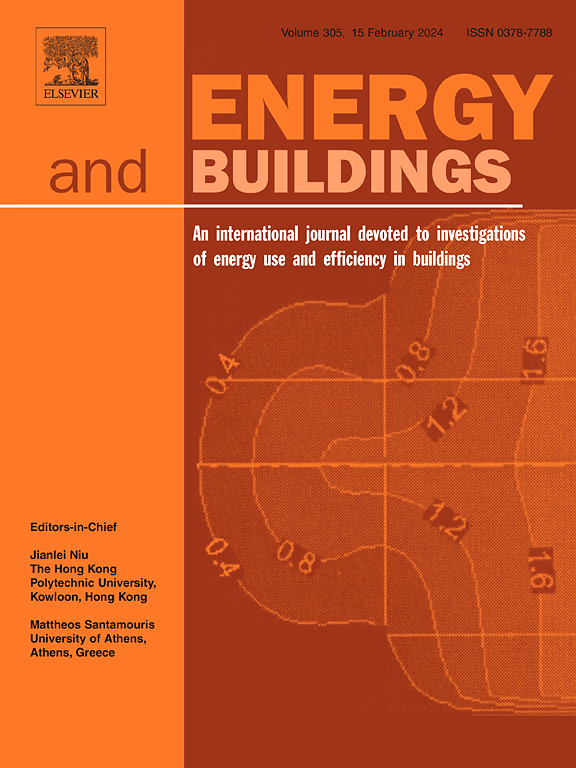基于贝叶斯推理增强城市建筑能源数据弹性的两阶段插值方法
IF 7.1
2区 工程技术
Q1 CONSTRUCTION & BUILDING TECHNOLOGY
引用次数: 0
摘要
随着人工智能和数字孪生等先进技术越来越多地融入城市系统,有效管理缺失数据在城市地区变得越来越重要。在首尔市内44万栋建筑中,共有8603栋建筑在2018年的月度用电量数据中存在一项或多项缺失。缺失数据有连续缺失型、非连续缺失型、混合缺失型和完全缺失型四种类型。本研究提出了一种结合机器学习和贝叶斯推理技术的两阶段归算方法。该方法应用于首尔的六座真实建筑。该案例研究确定了三个关键发现。首先,估算结果的CVRMSE值在3.88% ~ 12.18%之间。其次,该方法在不同类型的缺失数据中证明了有效性。第三,该方法可以有效处理多达7个缺失数据点的情况。这种方法不仅提高了城市数据的完整性,而且有助于城市系统内数据驱动的分析和决策过程。本文章由计算机程序翻译,如有差异,请以英文原文为准。
A two-stage imputation method for enhancing urban building energy data resilience using Bayesian inference
As advanced techniques such as artificial intelligence and digital twins become increasingly integrated into urban systems, effective management of missing data is becoming more important in urban areas. A total of 8,603 buildings were found to have one or more missing data in their 2018 monthly electricity consumption data, out of about 440,000 buildings in Seoul. There were four types of missing data, consecutive missing type, non-consecutive missing type, and mixed missing type and full missing type. This study proposes a two-stage imputation method, which integrates machine learning and Bayesian inference techniques. This method was applied to six real-world buildings in Seoul. The case study identified three key findings. First, the imputation results achieved CVRMSE values ranging from 3.88 % to 12.18 %. Second, the method demonstrated effectiveness across diverse types of missing data. Third, the proposed method can effectively handle cases with up to seven missing data points. This method not only enhances the integrity of urban data but also contributes to data-driven analysis and decision-making processes within urban systems.
求助全文
通过发布文献求助,成功后即可免费获取论文全文。
去求助
来源期刊

Energy and Buildings
工程技术-工程:土木
CiteScore
12.70
自引率
11.90%
发文量
863
审稿时长
38 days
期刊介绍:
An international journal devoted to investigations of energy use and efficiency in buildings
Energy and Buildings is an international journal publishing articles with explicit links to energy use in buildings. The aim is to present new research results, and new proven practice aimed at reducing the energy needs of a building and improving indoor environment quality.
 求助内容:
求助内容: 应助结果提醒方式:
应助结果提醒方式:


